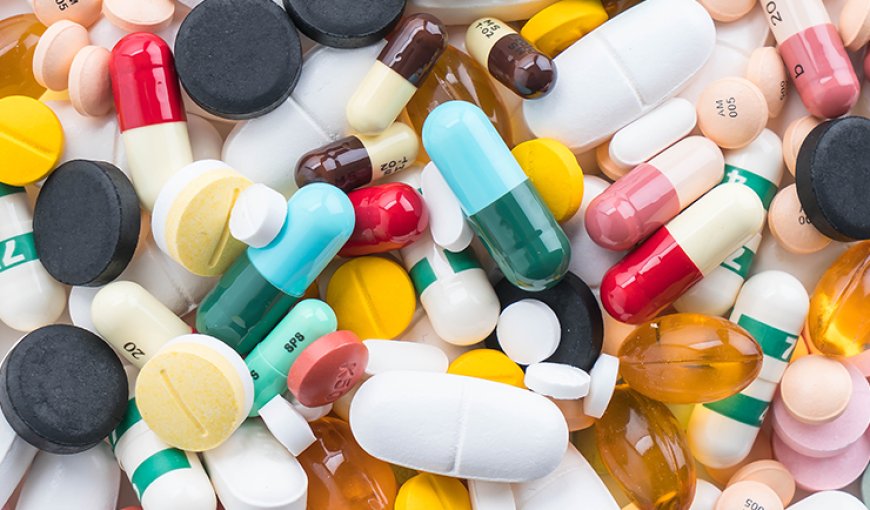Moisture Barrier Solutions for Pharmaceuticals and Packaging | Benefits & Applications
Discover the importance of moisture barriers in protecting pharmaceuticals and packaging materials. Learn how they preserve product quality and extend shelf life.

Introduction
In the pharmaceutical and packaging industries, the presence of moisture can significantly impact product integrity and shelf life. Moisture-sensitive products like tablets, capsules, and certain food items require adequate protection to maintain their efficacy and safety. This is where moisture barriers come into play. These barriers prevent moisture from penetrating the product, ensuring it remains stable and effective over time.
What is a Moisture Barrier?
A moisture barrier is a material or coating designed to block or significantly reduce the passage of water vapor from the external environment into a product. These barriers can be incorporated into packaging or used as a coating on products like tablets or capsules. They are particularly vital for products prone to degradation in the presence of moisture.
Importance of Moisture Barriers in Pharmaceuticals
Pharmaceutical products, especially oral solid dosage forms like tablets, are often sensitive to moisture. Exposure to humidity can lead to physical, chemical, and microbiological changes, causing the drug to lose its potency, change in color, or disintegrate prematurely. A reliable moisture barrier can help prevent these issues by:
- Protecting drug efficacy: Maintaining the drug's potency by preventing degradation.
- Ensuring product stability: Preserving the physical and chemical stability of the product.
- Enhancing shelf life: Extending the product’s shelf life by protecting it from moisture-induced deterioration.
Types of Moisture Barriers
Several types of materials and coatings act as moisture barriers, depending on the industry and application. The most commonly used include:
-
Polymer Coatings: Many pharmaceutical companies use polymer-based coatings on tablets and capsules. Polymers such as ethylcellulose, PVdC (polyvinylidene chloride), and acrylic-based resins are commonly used for moisture resistance.
-
Aluminum Foil: In packaging, aluminum foil is often used as an excellent moisture barrier, especially in blister packs. Its impermeability makes it highly effective in blocking moisture and oxygen.
-
Laminated Films: Multi-layer laminated films used in food and pharmaceutical packaging can offer superior moisture resistance. These films often combine polymers like polyethylene and polyamide with barrier coatings.
Applications in Pharmaceuticals
In pharmaceuticals, moisture barriers are crucial in both primary and secondary packaging. Some notable applications include:
-
Tablet Coatings: Enteric and film coatings on tablets not only provide a controlled release of the drug but also act as a moisture barrier to protect the active pharmaceutical ingredients (APIs).
-
Blister Packaging: Blister packs with aluminum or high-barrier plastic films are common in the pharmaceutical industry. They shield individual tablets or capsules from moisture and air, ensuring product quality until consumption.
-
Capsule Protection: Gelatin capsules are prone to moisture absorption, so moisture barriers, often in the form of protective films or blister packs, are necessary to prevent the capsules from softening or hardening.
Benefits of Moisture Barriers
Moisture barriers offer numerous benefits, especially when it comes to maintaining the quality and longevity of pharmaceutical products. These include:
-
Improved Product Stability: By protecting products from moisture, the risk of degradation is minimized, ensuring stability over time.
-
Enhanced Safety: Moisture can cause unwanted chemical reactions, potentially creating toxic by-products. Moisture barriers prevent such reactions, ensuring the safety of the product for consumers.
-
Longer Shelf Life: With moisture kept at bay, products can be stored for extended periods without compromising their efficacy or quality.
-
Cost Efficiency: Reduced spoilage and returns due to moisture damage can save companies significant costs over time.
Applications Beyond Pharmaceuticals
Moisture barriers aren’t limited to pharmaceuticals; they are also critical in industries like food packaging, electronics, and construction materials. In food packaging, moisture barriers prevent spoilage, keeping products fresher for longer. Similarly, electronics need moisture barriers to prevent corrosion, and construction materials benefit from water-resistant layers to avoid structural damage.
Conclusion
Moisture barriers play a vital role in maintaining the quality, efficacy, and safety of pharmaceutical products and packaging materials. By providing a protective shield against moisture, these barriers not only extend the shelf life of products but also ensure that consumers receive safe and effective medications. As technology advances, we can expect to see even more innovative solutions in moisture barrier materials that further enhance product stability and longevity.
What's Your Reaction?

















